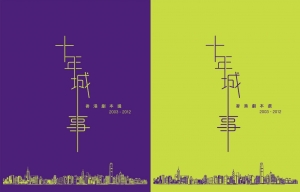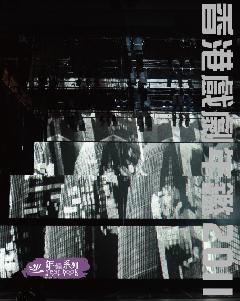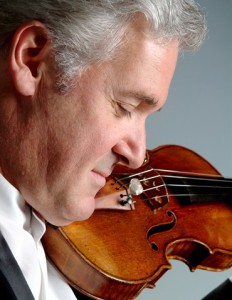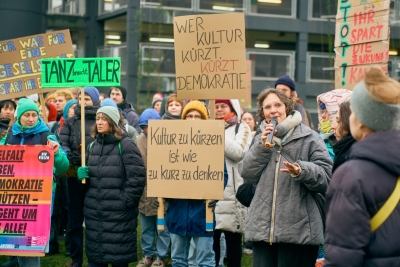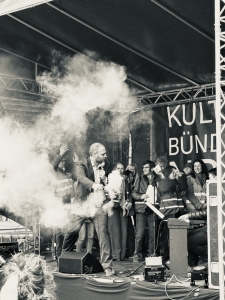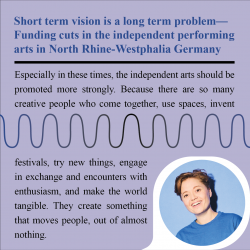 |
October 2025
I have been working as a freelance artist in the independent scene in North Rhine-Westphalia for more than 10 years now. I chose this path during my studies. Out of interest. Interest in the exciting forms and experiments that I had never seen before. I grew up in the countryside, and during my school days I only knew the municipal theatre.
When I came to Bochum to study scenic research, I saw the first plays of the independent scene in North Rhine-Westphalia and international performances in production houses such as the FFT and the Ringlokschuppen Ruhr. I was fascinated. I was presented with a different picture, different themes than always the same canon. Performances that were much closer to me. That reflected current events and social issues. Performers who did not remain hidden behind a role, but who were approachable, told stories that seemed to be based on their own experiences, linking them to social discourse. I saw more meaning in this for myself, because it felt as if the focus was on exchange and the collective, and not just on representation.
During my studies, I realised more and more that I was interested in experiments: questioning the rules of theatre, searching for a new form. So I decided to orient myself towards the independent scene.
North Rhine-Westphalia seemed to be a good place for this, with a lively independent scene offering a wide variety of themes and forms. From body art performances, live art, physical theatre, puppetry, contemporary dance and documentary forms to collective arrangements. So many people with so many exciting ideas and projects.
New beginnings and growth
Over the last 10 years, the scene has continued to grow, partly thanks to artistic degree programmes such as Physical Theatre at the Folkwang University of the Arts, and Scenic Research at the Ruhr University Bochum. Next semester, the degree programme Theatre and Digitality will start at the Dortmund University of Applied Sciences and Arts.
The scene is well connected. North Rhine-Westphalia has one of the oldest representations of the independent performing arts in Germany. Last year, we celebrated the 40th anniversary of the NRW Landesbüro Freie Darstellende Künste e.V. (North Rhine-Westphalia State Office for Independent Performing Arts)—four decades of self-organisation, fighting for funding and better working conditions.
In recent years, it seemed as if something might change. After a long cultural policy battle, a three-year funding programme for independent ensembles was introduced for the first time in 2012: the Spitzenförderung (top-level funding). In 2018, the Ministry of Culture and Science of North Rhine-Westphalia, then headed by Isabel Pfeiffer-Poensgen, announced an increase in the budget for the independent performing arts. It should increase by 50% from 2018 to 2020. “Top-level funding” was expanded and the slightly better endowed “excellence funding” was introduced. In 2020, the less well-endowed “concept funding” was added, which currently still goes to 35 groups.
This created a funding system that promoted the professionalisation of the scene and offered artists more planning security. This funding system is unique in Germany and plays a pioneering role for other federal states. There was even a promise that if a group received one of the grants three times, it would automatically move up to the higher level of funding.
Back then, as a young artist, I imagined a stable future in the independent scene. Always knowing that I wouldn't earn a fortune, but with the certainty that with a little luck and ambition, I could continue.
Then came the pandemic in 2020 and the lockdown. Events were cancelled, no one was allowed to rehearse. The Ministry of Culture and Science reacted quickly. There were cancellation fees and research grants. Money also flowed in from the federal government. Special support programmes were set up for 2021 and 2022. We, as young collectives, now also received federal funding for projects and research for the first time.
But it was only a short high. The pandemic, the energy crisis, the war in Ukraine—the national budget was groaning. And suddenly, the word everywhere was: save money. And when savings in the state budget are made, the first thing to be cut is so-called “voluntary services” of the state—in other words, culture. And within culture, it is always the independent scene.
Picture of the rally in front of the Parliament in NRW on 16 January 2025 against the funding cuts for projects like Cheers for Fears (https://cheersforfears.de/?lang=en) and IDAS (https://i-das.de/)
Political changes
In 2022, following the elections in North Rhine-Westphalia, we got a new minister: Ina Brandes. With her arrival, a different culture of dialogue took hold in the ministry. Whereas previously there had been exchanges on an equal footing and good discussions, now only sparse information about the current situation is being released. Due to the recession in Germany, she always emphasises that they have to take a wait-and-see approach. This is likely to delay decisions in the ministry. The minister publicly emphasises how important the independent scene is—but the reality is different. In 2024, funding was cut for entire projects, such as Cheers for Fears, a network project that connected art students, and IDAS, an international dance network. The initiatives affected only found out about this in December—a few weeks before their funding expired. The new round of funding for excellence and top-level should have been announced in autumn 2024, as the new funding round was scheduled to begin in July 2025. Communication with the ministry? Catastrophic. Under former minister Pfeiffer-Poensgen, the scene was involved in decisions. Now there is silence. The calls for proposals for top-level and excellence funding should have been published long ago—but for months there was no response.
Resistance and solidarity
In January, the scene’s strong network was already evident, as on 16 January more than 200 artists stood in front of the state parliament in the freezing winter cold with banners and posters. This was the first demonstration against the cuts.
In March, the groups that were already receiving top-level funding joined forces to exert pressure for the call for proposals to finally be issued. We wrote open letters to all members of parliament and informed the press, with success. Not only the TV stations, newspapers and radio stations in North Rhine-Westphalia but also nationwide reported on it.
In June, the North Rhine-Westphalia culture pyramid collapsed in front of the state parliament. 80 blue barrels were stacked up to form a pyramid. A symbol and a memorial that if one of the building blocks of the funding system is removed, everything collapses.
Kulturpyramide NRW. Artistic Intervention in June 2025 in front of the Parliament
In the summer, the Kultur Bündnis NRW (North Rhine-Westphalia Cultural Alliance) was formed—a broad alliance of independent artists, trade unions (ver.di, GDBA, unisono, etc.), initiatives, and institutions. On 8 October, a large rally took place, accompanied by press reports, radio broadcasts and television reports—rarely has the independent scene been so visible. Further actions are planned for the coming months.
In addition to the public actions, many meetings were held with individual politicians. We managed to draw so much attention to our cause that even the Deputy Prime Minister sought talks with representatives of the scene.
Our protest has already achieved a great deal. The threatened 50% cuts in peak funding have been partially withdrawn, so that only about 25% has been cut in the funding programme. Funding has finally been announced and can continue in January 2026.
“Wer kürzt, denkt zu kurz” (Those who cut fundings think too short-term)—the main slogan from the rally in October
A magician makes the opera choir disappear at the rally of the Kultur Bündnis NRW on 8 October 25
The cuts are not just financial decisions—they are political ones. It is no coincidence that the projects being cut are precisely those that deal with social issues, diversity, or democracy. The state’s withdrawal from funding critical art is a dangerous signal.
For what disappears when free art disappears? It is the spaces where people think, doubt, and discuss together. It is the places where utopias are tried out, where it is okay to fail. Places where not the perfect form counts, but the attempt to create something new.
Unfortunately, I increasingly feel that the CDU is already cutting funding for left-wing, freedom-loving projects, thereby killing them off. In doing so, they are consciously or unconsciously paving the way for the fascists. At a time when right-wing slogans are unfortunately becoming socially acceptable again in Germany, the independent scene is perhaps one of the last bastions of democratic discourse. When it falls silent, things become quiet—and silence is rarely harmless. We are already seeing this in rural areas. In spaces that are no longer used for cultural activities, right-wingers and fascists are filling the void.
Especially in these times, the independent arts should be promoted more strongly. Because there are so many creative people who come together, use spaces, invent festivals, try new things, engage in exchange and encounters with enthusiasm, and make the world tangible. They create something that moves people, out of almost nothing.
And that is precisely the strength of the independent scene: it is resistant, creative, heterogeneous, lively, full of drive and new ideas. I am fighting to ensure that there are many of us, that there is a bright future not only for the scene but also for the people who live here.
New hope coming up on the horizon
As I just wanted to submit this essay, news came in this morning. The ministry announced, that they will top up the budget for the arts for 2026. They said, the ministry found opportunities to make an increase of 8 million euros possible for next year. It shows that our fight was necessary and all the hard work of the last months pays off. We managed to be loud enough to draw attention to our claims. The next weeks will show how the increase in the budget will be distributed. It remains exciting.
(Photos provided by the author)
本網站內一切內容之版權均屬國際演藝評論家協會(香港分會)及原作者所有,未經本會及/或原作者書面同意,不得轉載。






